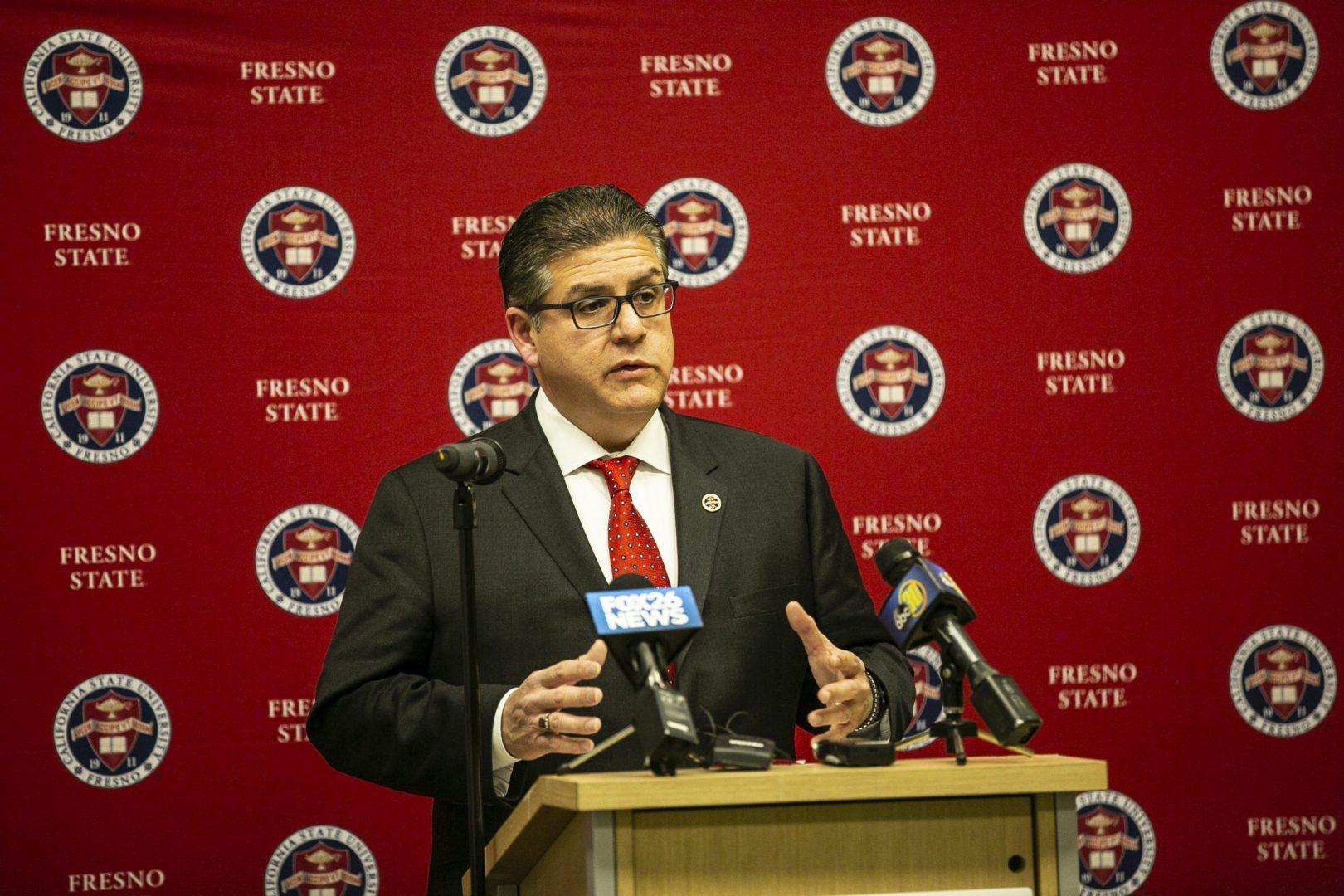Former Fresno State president Joseph Castro resigned as CSU chancellor, but is poised to teach classes such as Leadership and Policy at Cal Poly in a tenured position in spring 2023.
Former employee Frank Lamas left Fresno State with a $260,000 settlement recommended by Castro and approved by former CSU chancellor Timothy P. White and now serves as founder and president of Lamas Education Advisory Services (LEADS).
How is the man accused of sexually harassing multiple students and employees now providing education advisory services? How is the man whose “blind spot” let it happen getting rewarded with a tenured position at Cal Poly?
Because the truth is that this behavior was not enabled simply by Lamas’ dominance or Castro’s “blind spot” and negligence. The university is not run by simply two people.
The problem is that the years of sexual harassment suffered by female students and staff, as well as the general tolerance of abuse recalled by staff under Lamas, are being ignored in the discussion that’s followed.
It’s a disservice to the victims of Lamas’ misconduct to allow both men to continue their lives with the wrist slap of a negative reputation trailing behind them on their way to further success.
But the problem is bigger than simply Castro and Lamas.
Fresno State has already failed and even punished individuals who came forward about Lamas’ misconduct time and time again, and the framing of the issue as something just Castro and Lamas did wrong — and nobody else — is a continued failure.
Last Thursday, Mary Lee Wegner, an attorney who handled the investigation for the CSU, released her report that stated that individuals serving in the positions of associate vice president of human resources (AVP-HR), Title IX coordinator and vice president of finance and administration were all aware of the numerous allegations of misconduct against Lamas and did nothing.
While the individuals in those positions changed during Lamas’ employment, the implication that multiple other people were aware suggests there is a culture of tolerance of Lamas’ behavior if it was known for years and nothing was done about it to protect victims.
Individuals serving in those positions continued to enable Lamas’ behavior despite being fully aware of the allegations, as evidenced by one particular failure of the Title IX system on campus.
In what is titled “Report 2” in the report, incidents are described in which Lamas asked an identified employee about his sexual orientation, made comments about women’s appearances and retaliated against the employee for raising such concerns.
Wegner’s report revealed that while both the AVP-HR and Title IX coordinator at the time spoke to the employee and Lamas about the alleged behavior, Lamas later attempted to put a performance improvement plan in the employee’s file.
The AVP-HR and Title IX coordinator prevented this and cautioned him against retaliation, but they ended up encouraging the complainant to interview for a different job on campus while allowing Lamas to keep a position he’d been abusing.
The university continuously let the people who came forward down, failing to follow up on a climate survey in June 2016 that revealed more widespread dissatisfaction with Lamas’ behavior, for instance, and failing to take action against Lamas despite the growing accusations over a period of five years.
The report concluded that the lack of faith in the administration deterred further reports being made against Lamas because employees simply didn’t trust the system.
Still, the report focused primarily on the effects of Castro’s and Lamas’ behavior and choices, rather than the rest of the administration that was present at the time. Even White, who approved Lamas’ controversial settlement, has largely escaped criticism despite being Castro’s superior at the time.
Other students, some not even detailed in Wegner’s report, have been hurt by the culture in Fresno State that previously enabled behavior like Lamas’.
In February 2022, Xitllali Loya organized a protest of nearly 100 individuals who demanded Castro’s resignation following the news breaking about Lamas, with Loya citing her own Title IX case from 2019, which she told The Collegian she felt was “thrown under the rug.”
When The Collegian covered Loya’s protest, students were still saying that they felt that their Title IX cases were not being properly addressed.
Students and staff alone have no reason to redevelop trust in Fresno State, even after current President Saúl Jiménez-Sandoval’s encouraging email outlining the next steps for Title IX. The university has to show a commitment to transparency and accountability before expecting students and staff to have faith in the administration again.
Fresno State needs to stop hiding behind Castro’s and Lamas’ behavior and accept that the problem runs much, much deeper than two bad apples. That’s the beginning of reestablishing an open, honest discussion with the campus community.
And until it does that, students and staff will continue to be vulnerable to harassment, retaliation and abuse.




